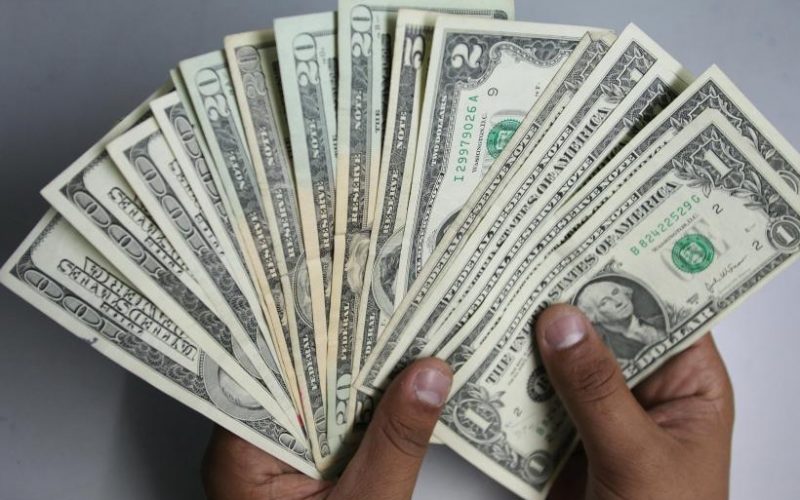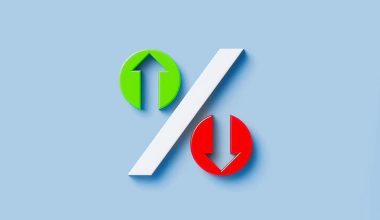Many young people don’t save in their twenties. Not because their spending is out of control but because their income is relatively small. If you don’t have retirement savings as a young adult or businessman. Then this article is for you, read on to know how much money should I have saved by 30, 18, 20, 25, 35, 40, and for the average American should save a month.
How Much Money Should I Have Saved by 30
Congratulations if you have $47,000 saved money at the age of 30! You are far ahead of your contemporaries. Moreover, the median retirement account balance for people under the age of 35 is $13,000, according to the Federal Reserve’s 2019 Survey of Consumer Finances. For this same age group, the median bank account balance is $3,240, and the median net worth (assets minus liabilities) is $14,000.
Meanwhile, the survey discovered that nearly 40% of people under the age of 35 have student loan debt. With a median debt balance of $22,000. Almost half have credit card debt, with a median balance of $1,900.
5 Ways To Save More Money at the Age of 30
If you’re 30, you still have three decades or more in the workforce. So don’t get disheartened if you’re falling behind on saving money. Implement these hints to get back on track with your financial goals:
#1. Make Your Emergency Savings Fund a Top Priority: How Much Money I Should Have Saved by 30
No matter your age, having an emergency savings fund with the equivalent of 3-6 months of expenses is critical for financial security. However, it becomes more important in your 30s as opposed to your 20s. Because you are more likely to have children and become a homeowner.
It may appear counterintuitive to have money in a savings account earning less than 1% interest. However, having that money on hand allows you to avoid liquidating your stock investments during a crisis. Moreover, Early withdrawals from a retirement account often result in taxes and penalties. As well as the need to sell your holdings at a loss.
Although you may be eager to pay off your student loans, saving for an emergency fund should come first. Further, make only the minimum monthly payments on your student loans. At least till you have three months’ worth of savings. At which point you can focus more on paying off your student debt.
#2. Contribute to a 401(K) As Well as a Roth IRA: How Much Money I Should Have Saved by 30
If your employer provides a retirement plan with matching contributions. Make absolutely sure to contribute enough each year to receive the full 401(k) match. Moreover, you can play catch-up by increasing your contributions. And you can also contribute to an individual retirement account (IRA) if you have extra money.
A Roth IRA is frequently a good choice because you forego a tax break now. Moreover, when your tax bracket may be lower, in exchange for tax-free income later in life. Furthermore, you can withdraw your contributions (but not the earnings on those contributions) at any time without incurring tax or penalty. In 2021, the maximum IRA contribution for people under the age of 50 is $6,000.
If you work as a freelancer, or independent contractor, or own a small business. You can save for retirement with a combination of IRAs and self-employment retirement plans.
#3. Consider Paying Off High-interest Debt To Be an Investment: How Much Money I Should Have Saved by 30
The choice between investing and repaying debt boils down to whether you’re paying more in interest on the debt than you could earn by investing. However, Given that an S&P 500 index fund yields an average annual return of about 8% to 10%. Then you should invest in your retirement fund to reap the benefits of your employer’s 401(k) match. And then pay down any debt with interest rates above this 8% to 10% range
If you have low-interest debt, such as a mortgage. Paying it off around the age of 30 is usually not in your best financial interests. You’d be better off investing that money to take advantage of compound interest.
#4. Take a Risk and Err on the Side of Caution: How Much Money I Should Have Saved by 30
Your retirement is decades away at the age of 30. You don’t need to be concerned about a stock market crash. Since the value of your portfolio will have plenty of time to recover.
Moreover, it’s critical to take on enough risk to create high returns, particularly if you’re getting started late. Hence, don’t invest in a portfolio that makes you nervous, but don’t be overly conservative either.
For people in their 30s, a portfolio is mostly invested in stocks. And having a small percentage invested in bonds is a great option. However, the rule of 110, which states that your stock allocation should be 110 minus your age, is a good guideline. So, if you’re 30, you should invest in 80% stocks and 20% bonds.
#5. Put Your Retirement Savings Ahead of Your Children’s Education: How Much Money I Should Have Saved by 30
Don’t make your children your retirement plan if you have any. Prior to contributing to their college funds, concentrate on strengthening your emergency fund and retirement savings.
Furthermore, your children will have options for financing their education. Such as working part-time, accepting financial aid in the form of scholarships and student loans, and enrolling in a low-cost school. Moreover, Your possibilities for paying for your own retirement, on the other hand, are restricted. When your retirement investing strategy is successful, you can begin saving for your children’s college education.
#6. Save More as Your Income Grows: How Much Money I Should Have Saved by 30
Many people spend their twenties living paycheck to paycheck. However, if you’ve previously received a few significant wage hikes, you may finally have some money to invest. So as your wage rises, it’s critical to boost your savings rate — the proportion of your paycheck that you set aside — with it. Your spending should rise more slowly than your income. Finally, if you commit to limiting lifestyle inflation and saving an increasing portion of your raises, you will be able to save enough money for your retirement years.
How Much Money Should I Have Saved by 18
It’s now time to calculate how much money your adolescent should have saved by the age of 18 in order to make a relatively smooth transition into young adulthood.
Having these conversations with your teen should provide them with a better understanding of how much money they should have saved by 18.
Your teen’s upcoming financial responsibilities – a combination of what they want to do with their lives next to and how much money you, their parents, are willing to support them financially – will be their “northern star” for how much they should save by 18.
They’ll Need Money To Cover the Following Expenses: How Much Money They Should Have Saved by 18
#1. Insurance Deductibles: How much money they should have saved by 18
Any insurance deductibles for which they are responsible must be saved up in an emergency fund. Moreover, That is not their entire emergency fund, but it is a good starting point. For instance, if you and your teen have agreed that they are responsible for their auto and health insurance deductibles. If your teen discovers that they have a $350 hospital deductible to meet and a $500 auto deductible to meet, they will want to save $850 to cover these.
#2. Deposits: How much money they should have saved by 18
They may be required to make some deposits in the near future. For example, your teen may have an apartment deposit (usually equal to one month’s rent), or deposits due for freshman year in college. Then a deposit to begin their own smartphone plan (particularly if they do not have established credit), and so on.
#3. Emergencies: How much money they should have saved by 18
Unless your teen wants to end up back on their parent’s couch, they’ll need some extra money to start that next phase. That means that if your teen requires $5,500 for their first apartment, textbooks, and insurance deductibles, they will require more than $5,500 in an emergency fund. Furthermore, It’s money that will sit in their bank account until they need it. And, while you can hope they don’t, chances are they will. Simply ask our parents!
Keep in mind what your teen will NOT be able to cover with their savings when determining how much money they should have saved by 18. In other words, in the examples above, there is no spending room for things like going out with friends on the weekend or groceries. These are also teen expenses that they’ll possibly need to cover, and they’ll have to come from their paychecks.
How Much Money Should I Have Saved by 20
On a $31,772 salary, saving 20% of your paycheck may be difficult. Moreover, Earning that much is unrealistic for many 20-year-olds. You may be unable to work full-time because you are still in school or because you are surviving on a combination of part-time jobs and side hustles.
Both your income and your expenses have an impact on your savings rate. However, saving money is much easier if you live with your parents. But, If you have student loan debt, your expenses will be higher, and you may want to prioritize paying it off first. let’s look at how much money you should be saving by 20.
When You’re 20, How Much Money You Should Save?
At the age of 20, the habits you develop are far more important than your actual savings balance. So, If you can just start saving, even if it’s a small amount, you’ll be in good shape in no time. Here are the habits you should form right now in order to achieve your financial goals, no matter how lofty they may be.
#1. Create an Emergency Fund: How Much Money You Should Save by 20
Regardless of your age, you should begin saving for an emergency fund with three to six months’ worth of living expenses. The good news is that your living costs are usually low when you’re 20. Similarly, If you have health insurance and don’t have children or own a home, the three-month minimum is probably sufficient.
Even if you can only manage $10 or $20 per week, try to budget a small portion of your income for a dedicated savings account. Once you have a consistent source of income, you can progressively work your way up to saving six months’ worth of costs.
Maintain a three-month emergency reserve in cash rather than in the stock market. Finally, money for an emergency should be readily available to you in an emergency.
#2. Avoid Incurring Credit Card Debt: How Much Money I Should Save by 20
While student loans are a major source of concern for many young people, credit cards are a far more dangerous kind of debt. Furthermore, When you carry a credit card balance, the average interest rate is above 16 percent. Which is significantly higher than the average interest rate for student loans.
You haven’t had much time to accumulate a large credit card load at the age of 20. Once you’ve saved enough money for your three-month emergency fund, pay off any existing balances. Moreover, you don’t have to avoid credit cards entirely because they are usually the greatest approach to creating a credit history. However, don’t charge anything that you can’t afford to pay off at the end of the month.
#3. Invest to Benefit From Compounding: How Much Money I Should Save by 20
Compound interest and profits are very significant in your early twenties. If you can afford to invest in the stock market at this age, the payback in retirement will most certainly be enormous. Additionally, If you start investing $5,000 at the age of 20 and get 9% annual returns, you’ll have more than $220,000 by the age of 65 – even if you never contribute another dime.
#4. Handle Student Debts With Caution: How Much Money I Should Save by 20
If you have student loans, you may believe that the most important financial aim is to pay them off as soon as possible. However, not all student loans are created equal; private loans have the highest interest rates and should be paid first. Later, if you pursue other financial goals such as saving, you can probably pay off any federal student loans with low-interest rates more slowly.
#5. Don’t Give In to Lifestyle Inflation: How Much Money I Should Save by 20
The most essential thing you can do right now to meet your savings objectives is to limit lifestyle inflation. Which is the inclination we have to raise our standard of living whenever we make more money. Moreover, you’re probably not living extravagantly at 21. The longer you can keep up your economic habits, the better off you’ll be.
How Much Money Should I Have Saved by 25
Do you want to know how much you should have saved by the age of 25? You’ve arrived at the right place. Read on to know how much money you should be saved by 25.
How much money you should have saved around 0.5X your annual costs by the age of 25. The more, the merrier. In other words, if you spend $50,000 per year, how much money you should have saved by 25 should be around $25,000.
You should have a job in an industry you enjoy by the age of 25. If not, 25 is a good age to start or finish graduate school for a better future. how much money you should have saved by 25 should be at least visible.
Read Also: How much Does Braces Cost In Texas, Florida, Michigan & Across The US
By the time you retire, you want to have a net worth that is at least 25 times your annual expenses right from how much money you saved by 25. Alternatively, as a retirement net worth figure, aim for 20X your annual average salary. In other words, if a person spends $50,000 per year, he should strive to have a net worth of $1.25 million or more by the time he retires.
Perhaps more essential than how much money you should have saved by the age of 25 is cherishing your youth. Even if you face a lot of uncertainty and work is a real grind, your youth and health are more valuable than money. Time passes quickly. Have fun while saving responsibly and know how much money should be saved by 25.
How Much Should I Have Saved by 35
To begin, keep in mind that everyone’s work and financial journey are unique. This means that following a rule of thumb to set a savings target can be misleading. Moreover, there are many acceptable and logical reasons why you may not have saved as much as the experts advised. And you should not be ashamed of not having met those targets.
Still, having a guideline can push you to jump-start your savings plans. Or it can allow you to rest knowing you’re making solid work toward retirement readiness. Fidelity Investments suggests saving three times your salary for retirement by the age of 40. That is, if you make $50,000 per year, your objective by the age of 40 will be to have saved $150,000 across all of your retirement plans, including 401(k)s and individual retirement accounts (IRA).
What’s More?
Furthermore, fidelity arrived at this figure by assuming you’ll retire at 67 and maintain your present quality of living in retirement. Which usually necessitates accumulating 10 times your salary by age 67.
The average 40-year-old, on the other hand, is on track to have less than that when it comes time to retire. Moreover, According to the Federal Reserve’s 2019 Survey of Consumer Finances, the median value of retirement accounts among 35- to 44-year-olds is $60,000 per person. It’s not much better for 45- to 54-year-olds, who have $100,000 stashed up on average.
How Much Money Should the Average American Save a Month?
According to some experts, how much money the average American should save a month is 20% of your monthly gross income. They caution, however, that every financial situation is unique and that any amount saved, no matter how small, is beneficial. At least the average American should save money with this much a month.
“If 20% isn’t possible, starting with a smaller goal of 5% to 10% may be a great way to build the habit of saving,” says Jamie Ebersole, a certified financial planner in Wellesley Hills, Massachusetts. So the average American should know how much money he saves a month.
Read Also: Pilot Salary: How Much Does A Pilot Earn?
Moreover, according to Eric Dostal, a certified financial planner and advisor with Wealthspire Advisors in New York City, another monthly savings goal is $1,000. So, the average American should save money with this much a month.
“That allows you to save $12,000 every year,” he explains. “Of course, depending on the individual’s situation, this can be scaled up or down.” Then the average American should save money with this much a month.
“I think the top savers save at least 20 percent of gross income yearly,” says Peter Hoglund, certified financial planner and senior vice president of Wealth Enhancement Group in Warren, New Jersey. Here is another one the average American should save money with this much a month.
The term “gross income” is significant because it means you’re saving 20% of your total income rather than your take-home pay. As a result, you may feel as if you’re saving 35 percent or even 40% of your paycheck, according to Hoglund.
What Defines Upper Middle Class?
White-collar professionals with above-average personal salaries, advanced degrees, and a high degree of autonomy in their work, which results in better job satisfaction, are considered to be members of the upper middle class in the United States.
What’s the Difference Between Being Broke and Poor?
Someone’s entire life is shaped by their poverty, and changing that requires much more than simply cutting back or making minor adjustments. However, for those who are poor, financial suffering is only momentary, and it is possible to go over it with the help of quick fixes.
What Jobs Does Upper Class Have?
They include professionals in the legal, medical, dental, engineering, academic, and architectural fields as well as civil service executives and independent contractors. Graduate degrees, such as those in law, business, or medicine, which are frequently necessary for professional professions, are held by many members of the upper middle class.
What Does a Rich Lifestyle Look Like?
Some people might believe that being wealthy merely means possessing or earning a lot of money. Others may define a rich life differently than you do, emphasizing other factors such as good health, strong bonds with family and friends, and a rewarding profession.
Are People Happier if They Have Money?
When it meets our fundamental necessities, money helps us be happier, but at a certain point, research shows that having more money doesn’t actually make us happier. Earning more money increased participants’ happiness and shielded them from factors that might have reduced it.
What Does Financial Anxiety Look Like?
Financially anxious people frequently worry about their payments and may be frightened to check their bank accounts or deal with anything related to personal finances. Additionally, financial anxiety is bad, much like other types of anxiety.
Conclusion
The above has explained how you should save according to your specific age and beyond.
How much money should I have saved by 30 FAQ’s
How much money should you have saved at 30?
Here’s how much cash they say you should have stashed away at every age: By age 30: the equivalent of your annual salary saved; if you earn $55,000 per year, by your 30th birthday you should have $55,000 saved. By age 40: three times your income. By age 50: six times your income.






